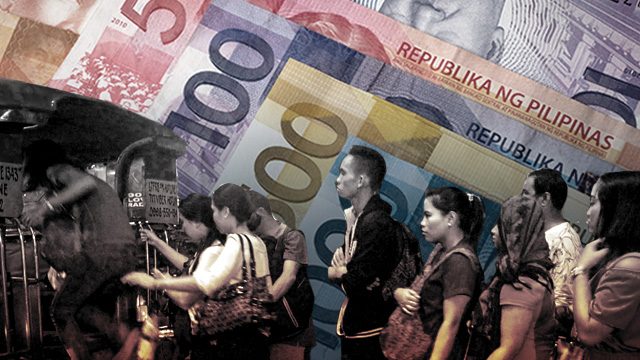SUMMARY
This is AI generated summarization, which may have errors. For context, always refer to the full article.

TUGUEGARAO CITY, Philippines – Several commuters blamed the newly-implemented tax reform law for causing the fares in public utility vehicles (PUVs) to double.
The Land Transportation Franchising and Regulatory Board (LTFRB), however, denied the Tax Reform for Acceleration and Inclusion – also known as the TRAIN law – had a “direct correlation” with the new fare matrix of PUVs in Cagayan Valley.
Instead, a timed adjustment of the rates to what they should be if passengers had not been undercharged for a prolonged period of time is said to be the cause of the negative reaction to the “price hike.”
Following a 10-year-old order
According to LTFRB Regional Director Nasrudin Talipasan, there should be a recently approved fare hike on the basis of increased oil products due to the new tax law.
The process in approving the fare hike included a petition among transport service providers asking the government transport regulators for a certain amount increase. The process tasks transport operators with justifying the request, such as the increased price of oil products.
This was not the case in the sudden fare increase.
Talipasan said the transport operators just moved to “strictly follow” a LTFRB order in 2007, which set a P2 prescribed fare per kilometer. This made, for example, the fare from Aparri to Tuguegarao and vice versa from P100 to P204.
“Ang sagot po natin diyan ay scientifically, there is no direct correlation between the TRAIN law and the prescribed fare, because nauna nga ‘yung prescribed fare,” Talipasan said.
(Our answer to that is, scientifically, there is no direct correlation between the TRAIN law and the prescribed fare, because the precribed fare came first.)
The LTFRB released the Memorandum Circular 2007-007 in February 2007. One of the provisions became the basis of the public transport providers in increasing the fare by around 100%.
“The provisional fare rates under this Comprehensive Program shall be P2.00 per kilometer on a straight line computation which the board may modify upon petition of any party after compliance with the requirements of Notice and Hearing,” a provision of the circular read.
The inference is mistaken
Talipasan said, however, the timing of the implementation of the new fare matrix could be “inferred” with higher oil prices after the imposition of new taxes on fuel under the tax reform law.
The TRAIN law imposed excise taxes on oil products. The Department of Energy (DOE) estimated the following additions would be imposed:
- gasoline – additional P2.97 per liter
- diesel – additional P2.80 per liter
- kerosene – additional P3.36 per liter
- Liquefied Petroleum Gas (LPG) for household – additional P1.12 per liter
- LPG for vehicles – additional P2.80 per kilo
“It is very timed with the implementation of the TRAIN law na tumaas nga ‘yung requirements ng pagpapatakbo ng isang negosyo sa transport. At dahil nakita ngayon ng ating mga transport groups na pupuwede nilang bawiin,” Talipasan said.
(The implementation of the new fare matrix is very timed with the implementation of TRAIN law as the requirements in running a transport business become more costly.)
Talipasan also said transport providers should be blamed for the public’s negative reaction to the new fare matrix because they had been undercharging for more than 10 years.
“Kasi ‘yun (TRAIN law) ang pinakamadaling sagot na naiiintindihan ng ibang tao at ‘yan naman talaga ang talk of the town. And siguro, ayaw [ng mga transport providers na] sabihin na nagkasala sila noon,” he said.
(The TRAIN law is the easiest reason many would would understand, and that’s also the talk of the town. And maybe the transport providers don’t want also to admit that they have made mistakes before.)
Fare competitions down
Talipasan noted that the transport group also begun following the prescribed fare of P2 per kilometer as the government succeeded in their crackdown against colorum vans.
He said this resulted to lesser fare competitions among passenger vans.
“At dahil nabawasan ang colorum vans, ay lumiit na lang yung competition. At dahil lumiit ‘yung competition ay hindi na kailangang babahan o mag-compete sila sa pababaan ng fare,” he added.
(The competition lessened due to the reduction in the number of colorum vans. Because of that, they did not have to lower their fares to compete.)
Talipasan also admitted that charging below the prescribed fare, also known as undercharging, is illegal. They could not act on it, however, because there was no proper complaint.
Under the law, undercharging passenger vans will be fined P5,000 for the first offense; P10,000 for the second offense; and P15,000 plus cancellation of franchise for the third offense. – Rappler.com
Add a comment
How does this make you feel?
There are no comments yet. Add your comment to start the conversation.